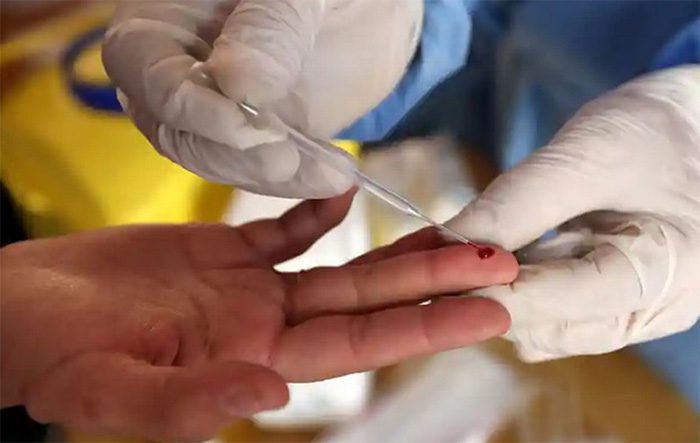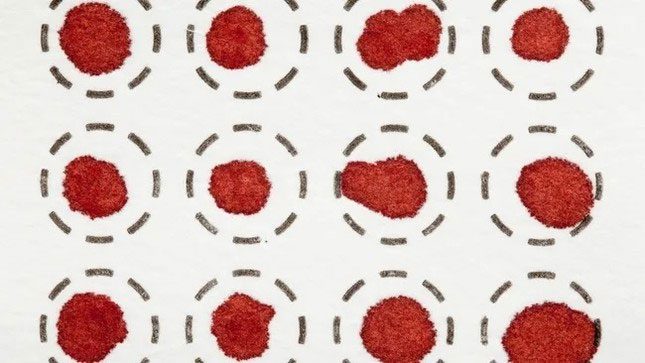A new tool, aided by artificial intelligence (AI), can detect the three deadliest types of cancer within minutes, requiring only a drop of dry blood.
Initial experiments by Chinese scientists indicate that with just a drop of dry blood, this tool can differentiate between patients with pancreatic, gastric, or colorectal cancer and healthy individuals in a matter of minutes.
The new tool employs machine learning technology, a branch of AI, to analyze metabolic byproducts, also known as metabolites, in blood samples. These metabolites (found in serum) act as “biomarkers” capable of signaling the presence of cancer in the body, according to LiveScience on April 23.

The new test requires less than 0.05ml of blood to diagnose cancer – (Illustrative image: REUTERS).
Screening for blood biomarkers has been proposed as a potential method for diagnosing early-stage cancer when survival rates are higher and patients show no clear symptoms.
Despite being among the deadliest cancers globally, pancreatic, gastric, and colorectal cancers currently lack a standalone blood test that is accurate enough for diagnosis. Instead, doctors typically rely on imaging or surgery to detect cancerous tissues.
This new tool utilizes machine learning, a form of artificial intelligence (AI), to analyze metabolic byproducts or metabolites in blood samples. These metabolites – found in the liquid part of blood known as serum – serve as “biomarkers” that can indicate the presence of cancer in the body.
Although pancreatic, colorectal, and gastric cancers are among the most dangerous in the world, there is currently no standalone blood test accurate enough for self-diagnosis.
Theoretically, this new test requires less than 0.05 ml of blood to diagnose these cancers. This claim comes from scientists in China who developed the test and described their findings in a paper published on April 22 in the journal Nature Sustainability.
This tool has also been shown to accurately distinguish between cancer patients and healthy individuals.
Furthermore, the study revealed that dry blood tests perform just as well as liquid blood tests. In one trial conducted by the research team, the dry blood test detected 81.2% of pancreatic cancer cases, compared to 76.8% with liquid blood samples.
Dr. Chaoyuan Kuang, working at the Albert Einstein College of Medicine (USA) and not involved in the study, noted that compared to liquid blood, dry serum can be “collected, stored, and transported at a lower cost and with much simpler equipment.”
However, he stated that more years of research are needed before this test can be widely available to the public.

Dry blood tests work as well as liquid blood tests.
In the United States, only one type of test has been approved by the Food and Drug Administration for diagnosing pancreatic cancer. This is the CA19-9 test, and current tests detect metabolites with an accuracy of about 80% when cancer symptoms are present. However, they only identify 13% of cases in asymptomatic patients, making them less useful for detecting cancer at very early stages.
Scientists believe that if used in large cancer screening programs, their test could make a significant difference. They report that this new tool could reduce the rate of undiagnosed cases of colorectal, gastric, and pancreatic cancers by approximately 20% to 50% if used for cancer screening in rural areas of China.
However, validating this new tool will require further testing, especially in large and diverse populations. The study has only tested a few hundred blood samples, so it is unclear how well these results will apply to other groups.
Researchers estimate that by 2030, about 75% of cancer deaths will occur in low- and middle-income countries due to significant barriers to healthcare access.
The authors of the study state that the new dry blood test could help improve access to testing in resource-limited areas, such as remote regions.
The research was published in the journal Nature Sustainability.



















































